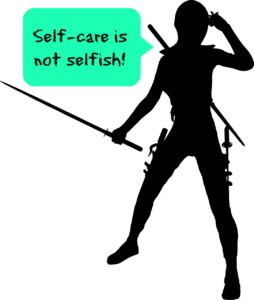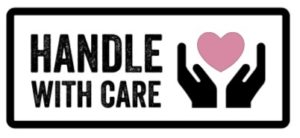- Calls to this hotline are currently being directed to Within Health, Fay or Eating Disorder Solutions
- Representatives are standing by 24/7 to help answer your questions
- All calls are confidential and HIPAA compliant
- There is no obligation or cost to call
- Eating Disorder Hope does not receive any commissions or fees dependent upon which provider you select
- Additional treatment providers are located on our directory or samhsa.gov
How to Become a Self-Care Ninja
“Caring for myself is not self-indulgence, it is self-preservation, and that is an act of political warfare.” – Audre Lorde
Step One: Appreciate the Art of Self-Care Ninja
Mastering the art of self-care boosts your mental and physical wellness. It is not an easy task, and there will certainly be times you don’t feel like practicing self-care. Those are the times it might be most important to do so and be a Self-Care Ninja.
 A vital part of the recovery process is recognizing that you are deserving of self-love. Practicing self-care can reinforce this belief and support your recovery journey.
A vital part of the recovery process is recognizing that you are deserving of self-love. Practicing self-care can reinforce this belief and support your recovery journey.
In the past, you might have thought it was selfish to take time for yourself and address your own needs. In reality, engaging in self-care allows you to be your best possible self, more present in all aspects of your life, and a better support for your loved ones. This is why flight attendants tell you to put on your own oxygen mask before helping the child next to you. You cannot be much help to others if you are not taking care of your own basic needs first.
Step Two: Acquire Self-Care Skills
Individuals with eating disorders are often people-pleasers who put their own needs second. Self-care is about intuitively listening to what your needs are and addressing them without feeling guilty or unworthy.By acquiring self-care skills, you can put these concepts into practice.
 Play your favorite song in the morning when you are getting ready for school or work. Say affirmations on your lunch break. Take a half hour to unplug before bed and read your favorite book. These small, mindful acts of self-care throughout the day can improve your wellness and state of mind.
Play your favorite song in the morning when you are getting ready for school or work. Say affirmations on your lunch break. Take a half hour to unplug before bed and read your favorite book. These small, mindful acts of self-care throughout the day can improve your wellness and state of mind.
Let yourself feel your feelings. You have probably heard this a lot in recovery, but that’s because it is so important! Any emotions you are having are valid, and letting yourself actually feel them completely is the best way to let them naturally pass.
Coping skills are another effective way to practice self-care. When you might have turned to your eating disorder behaviors in the past, you can now turn to healthy coping skills that are not harmful to your mind and body. Examples include taking a bubble bath or going to the beach. These are activities that feed your soul instead of feeding your eating disorder.
Letting go of toxic relationships is a vital form of self-care. Surround yourself with people who appreciate your unique self and build you up, not those who tear you down or trigger your eating disorder.
In essence, self-care is doing what is best for your mind, body, and soul in any given situation, whenever possible. This means that self-care is fluid. If you have been stressed at the office all week, your method of self-care might be staying in with a movie and cup of hot cocoa on Friday night. If you are feeling bored and want to get out, your self-care might be meeting up with a group of friends or going on a date. Don’t be afraid to check in with yourself. Learning to listen to what you need and giving yourself the right to embrace that is a beautiful thing.
 Step Three: Consciously Practice Being a Self-Care Ninja
Step Three: Consciously Practice Being a Self-Care Ninja
You might someday get to the point where you go on self-care autopilot. Until then, you need to consciously practice self-care every day.
Of course, this needs to be realistic. You cannot expect to leave school or work early and go to the beach every time you’re having a bad day. But fitting in little acts of self-care throughout the day can seriously improve your mental and physical health. Then take Saturday to check out the waves!
How do you practice being a self-care ninja on a daily basis? Share with us on Eating Disorder Hope’s online forum today!

